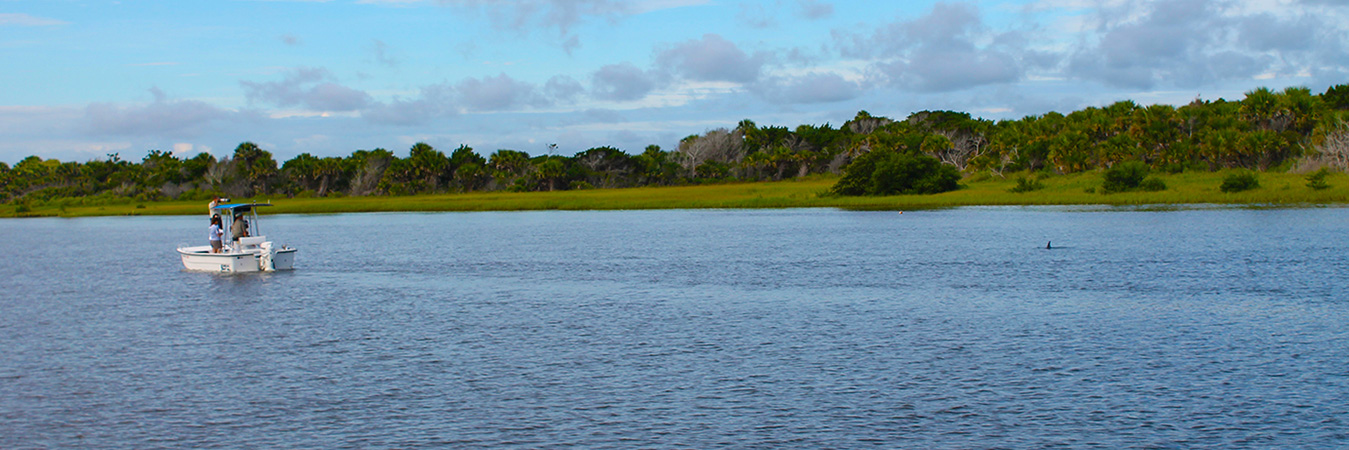GACFS staff have conducted Atlantic bottlenose dolphin Photo Identification research since 2009. As co-investigators with Harbor Branch Oceanic Institute at Florida Atlantic University (HBOI), this federally authorized study involves vessel-based surveying of free-ranging dolphins in Northeast Florida’s estuarine and near coastal waters of central and northeast Florida. Alongside HBOI, our researchers work to identify and catalog distinct individuals over time to estimate abundance, distribution, habitat usage, and other baseline information pertaining to their population dynamics. GACFS staff have identified over 350 individual dolphins that inhabit the previously unstudied areas of Flagler, St. John’s, and portions of Duval Counties.
Since 2012, GACFS staff have collaborated with other institutions to conduct the Northeast Florida Consortium Atlantic bottlenose dolphin abundance surveys (NEFL). With the coordinating efforts up to eight different government, non-government, university, and private agencies, GACFS helps to survey portions of a 300-mile geographic area. This area of study includes Fort Pierce, Florida, up the Intracoastal Waterway to the Florida/Georgia state line, as well as in the St. John’s River from Mayport Naval Station (Jacksonville) to just north of Palatka, Florida. In 2016, GACFS was able to complete three of these surveys in the winter months, and three during summer.
Additionally, in 2016, GACFS personnel embarked on an abundance survey project of Atlantic bottlenose dolphins that reside in the Indian River Lagoon with HUBBS Sea World Research Institute (HSWRI) and HBOI researchers. GACFS personnel were authorized to obtain skin and blubber samples (remote biopsy) of dolphins within northeast Florida which will be used for genetics, analyzing contaminant loads, and potentially diagnosing infectious diseases. Our work in photo identification and dart biopsies help establish a foundation of critical, contextual data to pave the way for future health assessments and marine mammal sentinel species health studies.











